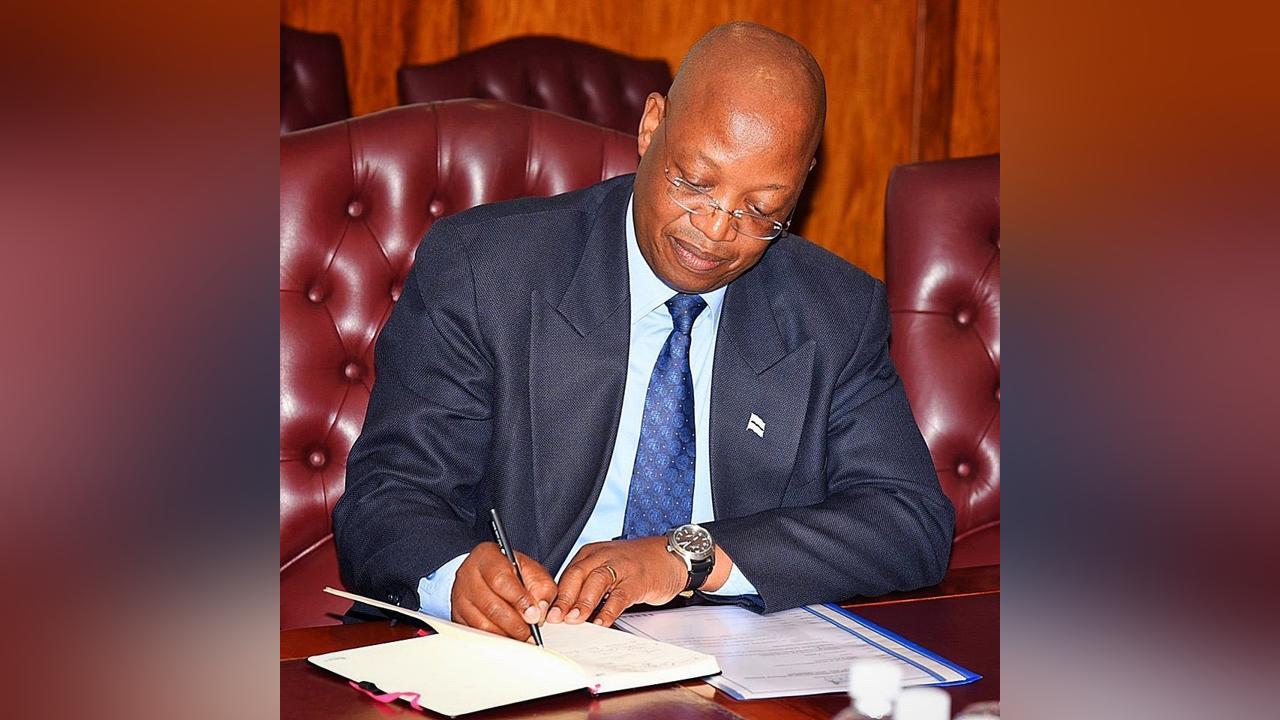Africa-Press – Botswana. State Owned Enterprises (SOEs) have played a key role in the country’s socio economic development, hence it is important to ensure alignment of their mandates with the national development agenda, including Vision 2036.
State Owned Enterprises were established to achieve some public policy objectives, such as the regulation of businesses and to serve as investment arms of government.
Office of the President’s Public Sector Reforms coordinator, Mr Thuso Ramodimoosi said in his welcome remarks during the Stakeholder Validation Workshop in Gaborone on Tuesday that the workshop afforded stakeholders an opportunity to comment on the draft policy and give feedback to the consultants tasked with developing the SOEs Ownership Policy for Botswana.
“The fact that Botswana has, overtime, attained an upper middle income status, is largely due to their contributions,” he added.
However, he expressed concern that the performance of SOEs remained unsatisfactory in terms of delivering their mandates and providing fair return on investments, which was a great concern to government.
“This concern was also expressed by the Permanent Secretary to the President, Ms Emma Peloetletse, when she recently met with the leadership of the respective SOEs, on a one-on-one basis,” he said.
For that reason, he stressed that it was important for SOEs, as key stakeholders, to be invited to the workshop to contribute to the development of their ownership policy.
“Please feel free to critic the document, while also offering constructive input for a sound policy,” he added.
In an effort to improve SOEs performance, the Public Sector Reforms coordinator said in 2020 government established a Cabinet sub-committee on the performance of SOEs to improve performance of these enterprises by considering all aspects in relation to their establishment, corporate governance, funding, performance and oversight.
“The sub-committee, which I believe was chaired by the Minister of Finance, was expected, amongst others, to review the SOE landscape with a view to strengthen accountability, create efficiencies and achieve service excellence,” he said.
Furthermore, in pursuit of its mandate, he said the sub-committee immediately noticed that the SOE landscape was characterised by incoherent and unstructured approaches, in relation to issues of governance, oversight and monitoring and evaluation.
To address these deficiencies, he said the sub-committee came to a conclusion that there was need for a government policy on SOEs, which would clearly articulate the stakeholders’ expectations on the role of SOEs in the country’s development and also ensure alignment of their mandates with the national development agenda, including Vision 2036.
Subsequently, in 2021, Mr Ramodimoosi said the then Ministry for Presidential Affairs, Governance and Public Administration mandated Public Enterprises, Evaluation and Privatisation Agency (PEEPA) to undertake the task of developing an SOE Ownership Policy for Botswana.
In fulfilling this task, he said PEEPA in turn engaged Botswana Institute for Development Policy Analysis (BIDPA).
He, therefore, commended PEEPA and BIDPA for delivering on the task, as well as the Reference Committee for spearheading the task.
Once the validation exercise has been completed, the coordinator said the draft policy would go through the normal government process of approval ‘and I think you are all aware that the ultimate approval body is Parliament’.
“Let us remember that we are creating an enabling environment for the economy and the country to attain high income status, as envisioned in Vision 2036.
It will please one, or us all, that when we submit the document to the relevant authorities for approval, especially Cabinet, it sees that indeed we have really done a great job,” he added.
Mr Ramodimoosi noted that in certain instances Cabinet would defer, or even reject a proposal, because it was not thoroughly done, not well assessed, not comprehensive enough, did not meet the objectives or it was not aligned to the National Development Agenda.
However, having gone through the document himself, he opined that after the validation workshop, and with the enrichment of the process, the draft policy would see the light of day.
PEEPA acting chief executive officer, Mr Ishmael Joseph also emphasised that it was important for SOEs, as key stakeholders, to have an input into the draft policy and also interrogate its every aspect.
The contributions, he said, would help provide valuable insights on issues that might have been missed during the stages of development and address all outstanding questions.
“We are here to confirm validity and reliability of the policy, as it sits. We are not building a policy for the past.
We are looking ahead, so as we look at validity, in terms of whether it represents indeed what we have experienced, but for the most part how it leads us into the future.
There is a great future for us ahead and we need to be working the path in the next five to 10 years of delivering on this policy,” said Mr Joseph.
Presenting the draft SOE Ownership Policy, BIDPA lead consultant, Dr Molefe Phirinyane explained once developed, the policy would; ensure efficient and effective performance of SOEs and create value for their shareholder, create a level playing field and expose SOEs to private sector competition and set out important principles and appropriate frameworks for the governance of SOEs, as well as their leadership with the shareholders and other stakeholders.
For More News And Analysis About Botswana Follow Africa-Press






